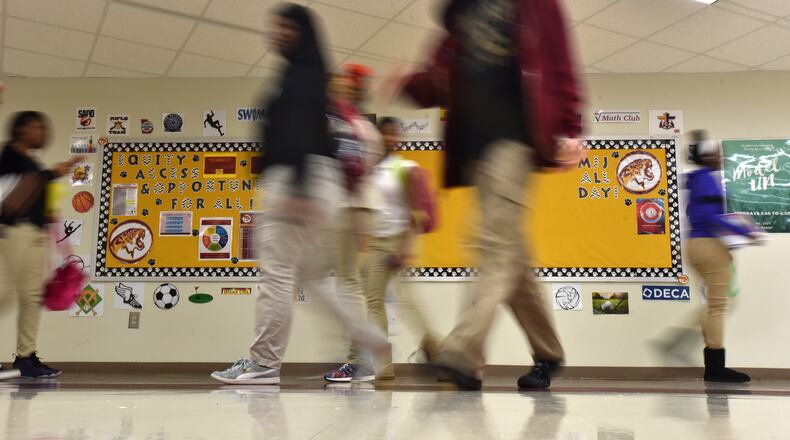Atlanta Public Schools may be more accustomed to critics than imitators, but three years into a turnaround effort APS has caught another district’s eye.
A contingent from Charleston visited Atlanta last week to check out schools and programs that the group is interested in replicating 300 miles away in South Carolina.
It may surprise some that other districts would view APS as a potential model.
After all, it was only four years ago that 11 former Atlanta educators were convicted of racketeering in a districtwide cheating scandal that thrust APS into an unwelcome national spotlight.
Atlanta leaders are quick to acknowledge that although the district has posted some gains since launching its turnaround strategy in 2016, much work remains to be done to improve still-struggling schools. It was only a few months ago that APS board members traveled to Denver to see what they could learn from the Colorado district.
But last week, the tables turned when APS hosted out-of-state visitors. The Charleston County School District has a number of troubled schools, including a half dozen listed on the state's "priority" list. Those are the schools that fall into the bottom 10 percent of all schools in South Carolina.
The group’s request to check out APS was the first of its kind for Atlanta school board Chairman Jason Esteves.
He and fellow board members Michelle Olympiadis, Cynthia Briscoe Brown and Eshe’ Collins met with the South Carolina group and took them to several Atlanta schools.
“I told them, ‘Look, what you saw today is a work in progress,’” Esteves said. “We don’t have the silver bullet here in Atlanta because we are still trying to address our issues.”
Kevin Hollinshead, a Charleston school board member, said news stories about APS turnaround efforts sparked his interest. He said the two southern school systems share plenty in common. Both have an enrollment of just over 50,000 students, have a large African-American population, and have schools in very low-income neighborhoods.
He acknowledged Atlanta has “gone through some turmoil” but thinks his district can learn from APS.
In 2016, the Atlanta school board approved a controversial turnaround plan to improve schools that were, at the time, in jeopardy of a proposed state takeover. The effort included closing and merging schools, providing more money for tutoring and social services, and hiring charter school groups to run a handful of schools. Some of those moves proved unpopular with parents and advocates.
The Charleston group included community leaders, retired teachers and a charter school group. They visited Hollis Innovation Academy, which opened in the Vine City and English Avenue neighborhoods in 2016. The school is expanding each year until it eventually will serve students in pre-kindergarten through eighth grades.
Hollinshead praised the extra social services-- what educators refer to as “wraparound services” -- offered at Hollis. The academy partners with community agencies, nonprofits and businesses to help parents and students with academic and non-academic needs. One program provides free legal assistance to help families avoid eviction.
Joe Bowers, director of operations for the Public Charter School Alliance of South Carolina, also made the trip to Atlanta.
“The thing that really impressed me at Hollis was the support for the teachers that are in that high-poverty environment,” he said.
He also cited the freedom Atlanta principals have to make decisions about what is best for their schools.
“Autonomy is key,” Bowers said. “That’s the main reason why you are starting to see more success.”
The Charleston group also visited two APS single-gender schools, the all-male BEST Academy and the all-female Coretta Scott King Young Women's Leadership Academy.
Hollinshead said he wants to meet with state officials back in South Carolina to see if they will support some of the initiatives he saw in Atlanta. He’d like to start by increasing salaries to attract great teachers and providing more social services for students and families.
He plans to return to Atlanta for another visit this fall.
RELATED: Inside Atlanta's Harper-Archer Elementary. An indepth report from the AJC
About the Author
Keep Reading
The Latest
Featured



